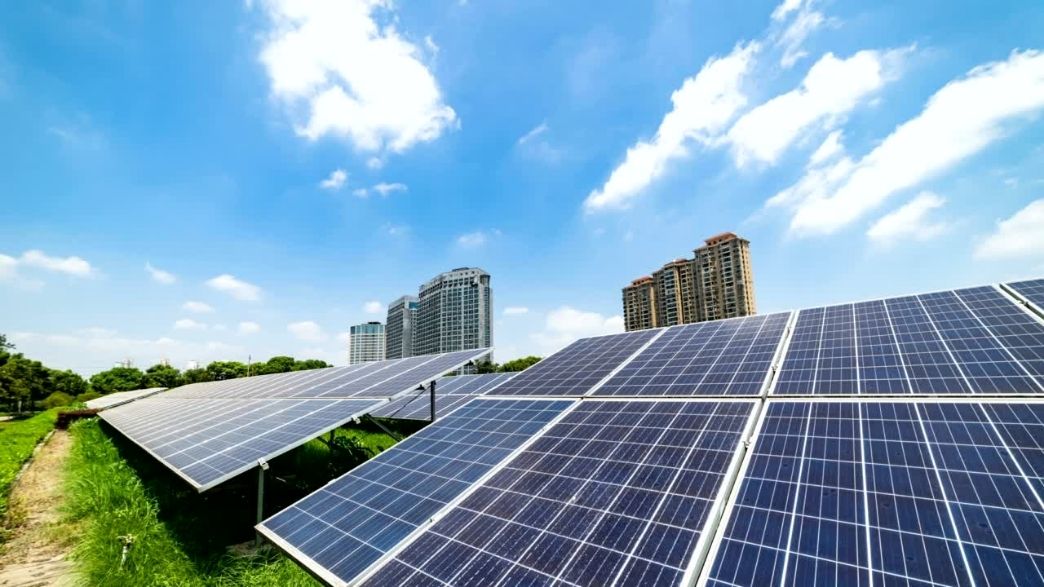Brazil reaches a historic milestone with 26 GW of installed solar energy capacity, reflecting a robust investment and significant economic impact.
Introduction to the Growth of Solar Energy in Brazil
The Brazilian energy landscape is undergoing a significant transformation, with solar energy emerging as a central pillar. Recently, Brazil reached a notable milestone by surpassing 26 gigawatts (GW) of installed solar energy capacity, according to a survey by the Brazilian Photovoltaic Solar Energy Association (Absolar). This growth reflects not only the country’s abundance of solar resources, but also a decisive shift toward more sustainable and renewable energy sources.
This significant advancement in solar energy is driven by a combination of favorable policies, significant investments and growing recognition of the importance of environmental sustainability. With the continued expansion of solar installations in homes, industries and large infrastructure projects, Brazil is positioning itself as a leader in the adoption of clean energy in Latin America.
Evolution and Investments in the Solar Sector
The trajectory of solar energy in Brazil is marked by constant evolution, driven by robust investments and a progressive energy policy. In recent years, the Brazilian solar sector has attracted more than R$130 billion in investments, a figure that underlines the country’s commitment to the transition to a cleaner and more renewable energy matrix. According to the Brazilian Photovoltaic Solar Energy Association (Absolar), these investments not only strengthened solar infrastructure, but also catalyzed technological innovations and boosted the local economy.
These financial contributions resulted in significant advances in solar energy capture and storage technologies, making it more accessible and efficient. The growing adoption of photovoltaic systems in homes, companies and large-scale projects reflects a maturing of the solar market in Brazil, demonstrating the viability and attractiveness of this energy source.
With the evolution of the sector, Brazil is establishing itself as an example to be followed in terms of investment and innovation in solar energy, paving the way for a more sustainable energy future.
Economic Impact and Future Projections of Solar Energy in Brazil
The economic impact of solar energy in Brazil is as luminous as the energy source itself. Studies indicate that by 2031, the increasing adoption of solar energy can generate significant savings on electricity bills, reaching an estimated value of R$84.9 billion. This projection, supported by analyzes from Volt Robotics and other entities in the sector, highlights the potential of solar energy to alleviate the financial burden on consumers and companies, in addition to contributing to the country’s economic stability.
The savings generated by solar energy are not limited to the reduction in electricity bills. It extends to encouraging new businesses and investments in the sector, promoting innovation and creating jobs. The expectation is that the continuation of this growth trend will further strengthen Brazil’s position as a global leader in renewable energy, paving the way for a more sustainable and economically advantageous energy future.
GNPW Group and Advancement in Solar Projects
In the solar energy panorama in Brazil, GNPW Group stands out with innovative initiatives. The company holds the concession for two photovoltaic plants in the municipalities of Altos and Campo Maior, in Piauí, totaling an installed capacity of 10MW. These projects are significant not only for their scale, but also for their potential to contribute to the diversification of the country’s energy matrix and the promotion of sustainable regional development.
GNPW Group’s performance demonstrates the importance of private companies in advancing the Brazilian solar sector. Investments like these are crucial to achieving national renewable energy goals and boosting the local economy by creating jobs and fostering technological innovation in the solar energy sector.
The Rio Solar Consortium, an innovative partnership between GNPW Group and V-Power Energia, represents an important milestone in Brazilian solar energy. This consortium won the Public-Private Partnership (PPP) for the development of the Solário Carioca project, located in Santa Cruz. This project is an example of effective collaboration between the public and private sector, aiming to expand solar energy generation capacity and promote sustainability.
The Solário Carioca project is strategic for the development of urban solar energy, standing out as a model for future renewable energy initiatives in Brazil. It not only strengthens the country’s commitment to sustainability, but also serves as a practical example of the viability and efficiency of solar energy in urban environments.
The Future of Solar Energy in Brazil
The advancement of solar energy in Brazil symbolizes more than mere numerical growth. It reflects a profound shift in the energy paradigm, aligning with global sustainability goals. Reaching milestones such as 26 gigawatts of installed capacity, and with substantial savings projections by 2031, Brazil demonstrates its potential as a leader in renewable energy. This path lit by solar energy not only strengthens the country’s energy matrix, but also boosts the economy, creates jobs and promotes a more sustainable future. Solar energy in Brazil, therefore, represents a promise of innovation, progress and resilience for future generations.

Comment